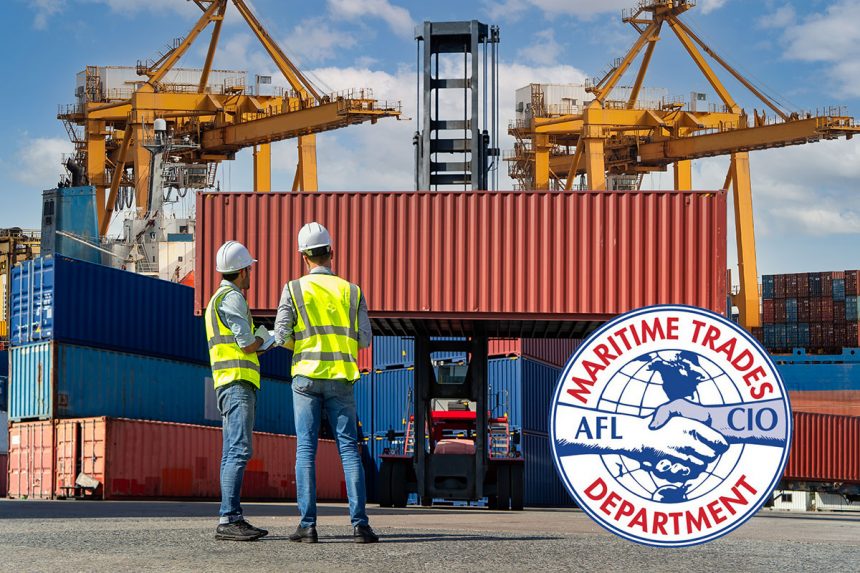
MTD Executive Board Members and guests heard news on global cabotage on March 9 during the annual board meeting that surprised almost everyone attending.
Seafarers’ Rights International (SRI) Executive Director Deirdre Fitzpatrick shared results of a long-term study conducted by her organization. Among the findings are that at least 91 countries maintain some form of maritime cabotage law. The SRI also found that such laws promote shipboard and environmental safety, national security, and good jobs.
“The Jones Act is often referred to as a model cabotage law: protecting jobs, the workforce, and the country,” Fitzpatrick stated. “But to protect the Jones Act, and to protect other cabotage laws around the world, it can only be helpful to know which countries have cabotage protections so that, in fact, the situation might be that the protection of cabotage laws is the norm, and it’s not the exception.”
She continued, “Looking at the international scene, I don’t think it will be any surprise to you to know that there are many countries around the world who are fighting to defend their cabotage laws. They’re fighting against the politicians, the press and the free trade advocates who appear in various guises.”
She then referred to some of those fights, including the long-fought battle for Canadian cabotage spearheaded by SIU of Canada President (and MTD Eastern Area Executive Board Member) Jim Given, as well as the ongoing struggles for domestic maritime rights in Australia, Southeast Asia and Europe.
To combat these attempts to dismantle cabotage, she added, the London-based International Transport Workers’ Federation (ITF) (which founded the SRI) assembled a special task force.
“In response to these threats, the Seafarers’ Section of the ITF, led by (Seafarers Union Secretary-Treasurer) David Heindel, set up an ITF Cabotage Task Force which is chaired by Jim Given…. Dave and Jim, together, have put the protection, the preservation and the expansion of maritime cabotage at the front of the agenda of the ITF. The first meeting of the ITF Cabotage Task Force took place in October 2015, and was hosted by the MTD in Washington, and the meeting was addressed by (MTD) President Michael Sacco.”
That task force, she explained, charged the SRI to conduct a new, more comprehensive survey on worldwide maritime cabotage laws, which surveyed a larger number of countries than the previous study on cabotage conducted by the US Maritime Administration (MarAd) in 1991. The new study, which surveyed 136 different countries on their cabotage restrictions, found that two-thirds (67 percent) of those nations utilized some form of cabotage laws.
But determining what constitutes cabotage was far from easy, she said: “I think sometimes it’s easy to talk about cabotage as if it is a concept that, first, everyone understands – which is not always the case – and secondly that it’s understood the same across different countries.”
Fitzpatrick continued, explaining that there is no single definition of cabotage among foreign countries.
She summarized the SRI’s findings, saying, “The results of our survey are clear. The regulation of maritime cabotage is widespread. The regulation of maritime cabotage is very diverse. But there are at least 91 countries today which have restrictions in their maritime cabotage laws to protect their maritime cabotage trades. Just like MarAd’s research in 1991, our research today shows that the Jones Act does not stand alone.”
Fitzpatrick said there are also “many countries where these laws are under severe attack. The ITF Cabotage Task Force is continuing its work to assist unions, develop strategies and practices to defend their cabotage laws, and even to expand cabotage protections around the world.”
According to its website, “The SRI is a unique and independent center established (in 2010) to promote, implement, enforce and advance all seafarers’ and fishers’ rights and remedies, including human rights and the rights of other persons on board vessels, through research, education and training throughout the international maritime industry, and advocacy in international, regional and national forums, and to provide a database of materials for the benefit of the international community.”

